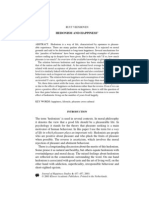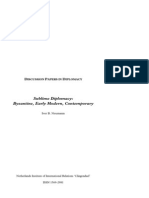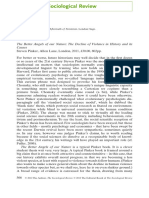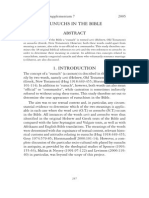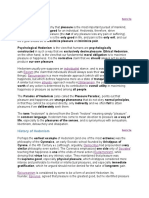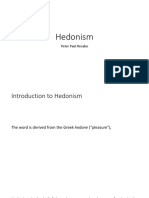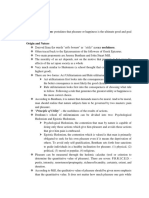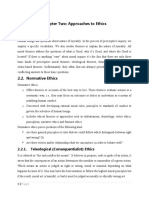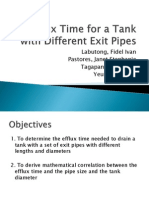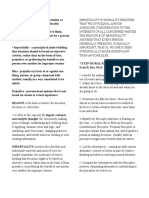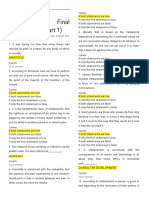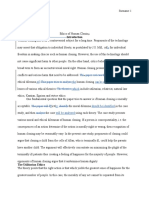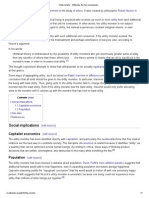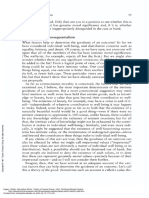0% found this document useful (1 vote)
318 views56 pagesHedonism and Utilitarianism
This document discusses hedonism and utilitarianism. It begins by defining hedonism as the philosophy that pleasure is the highest good and the proper aim of human life. It then outlines different types of hedonism such as value hedonism, prudential hedonism, and normative hedonism. The document also discusses the origins of hedonism in ancient Greek philosophy and its development over time. It notes both pros and cons of hedonism. The document then explains utilitarianism as the view that the morally right action is the one that produces the greatest happiness for the greatest number of people. It outlines different types of utilitarianism and discusses pros and cons of act and rule utilitarian
Uploaded by
UKissMeowCopyright
© © All Rights Reserved
We take content rights seriously. If you suspect this is your content, claim it here.
Available Formats
Download as PDF, TXT or read online on Scribd
0% found this document useful (1 vote)
318 views56 pagesHedonism and Utilitarianism
This document discusses hedonism and utilitarianism. It begins by defining hedonism as the philosophy that pleasure is the highest good and the proper aim of human life. It then outlines different types of hedonism such as value hedonism, prudential hedonism, and normative hedonism. The document also discusses the origins of hedonism in ancient Greek philosophy and its development over time. It notes both pros and cons of hedonism. The document then explains utilitarianism as the view that the morally right action is the one that produces the greatest happiness for the greatest number of people. It outlines different types of utilitarianism and discusses pros and cons of act and rule utilitarian
Uploaded by
UKissMeowCopyright
© © All Rights Reserved
We take content rights seriously. If you suspect this is your content, claim it here.
Available Formats
Download as PDF, TXT or read online on Scribd
/ 56

